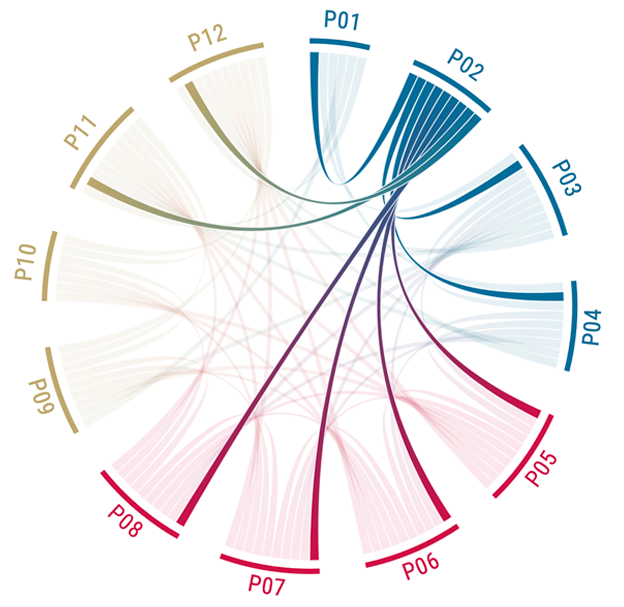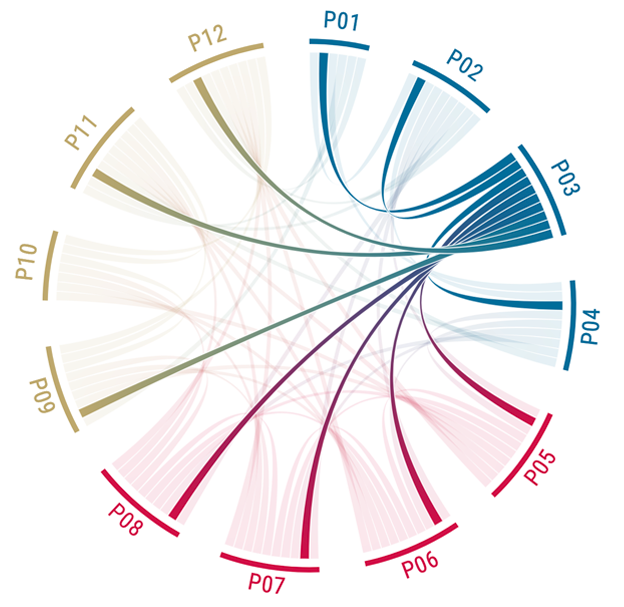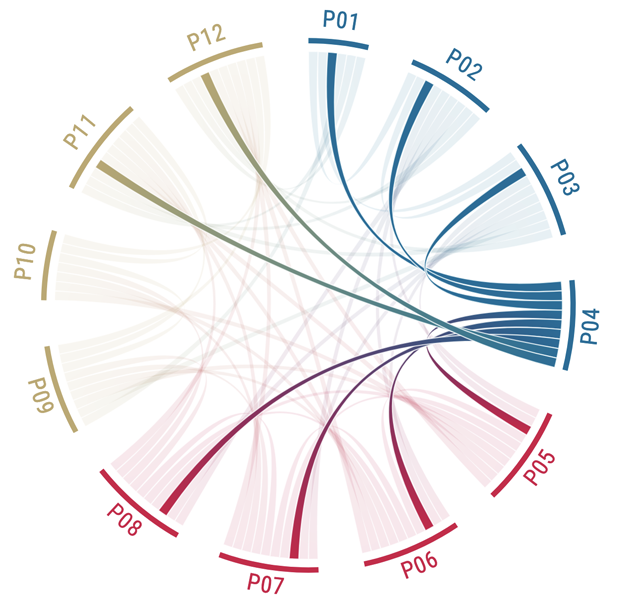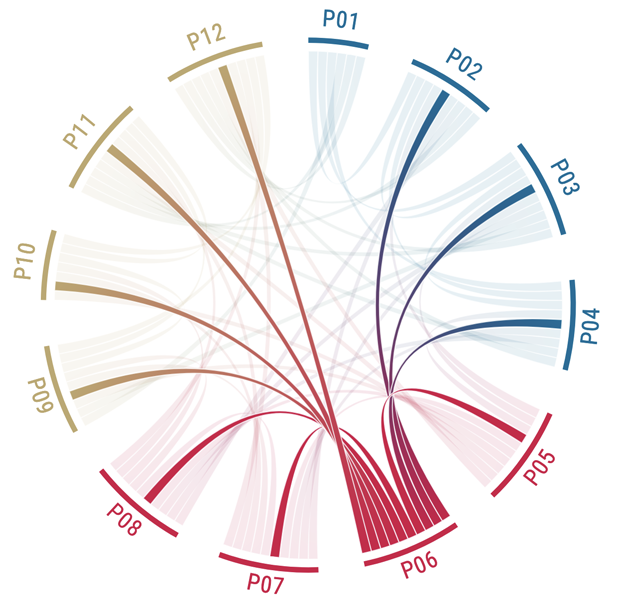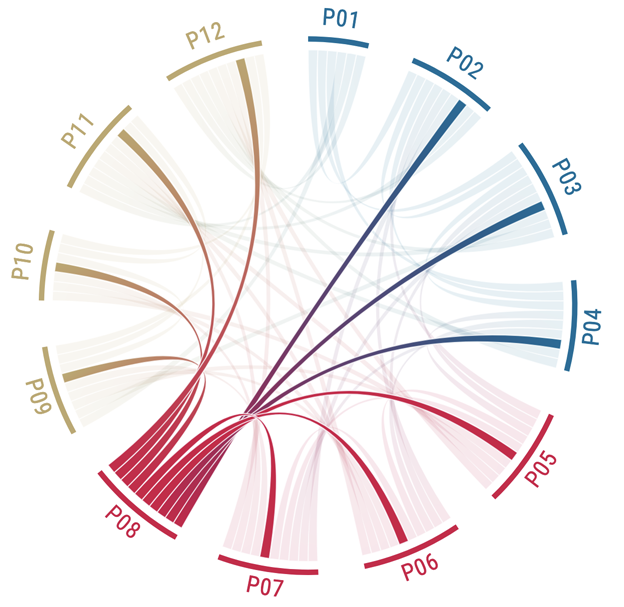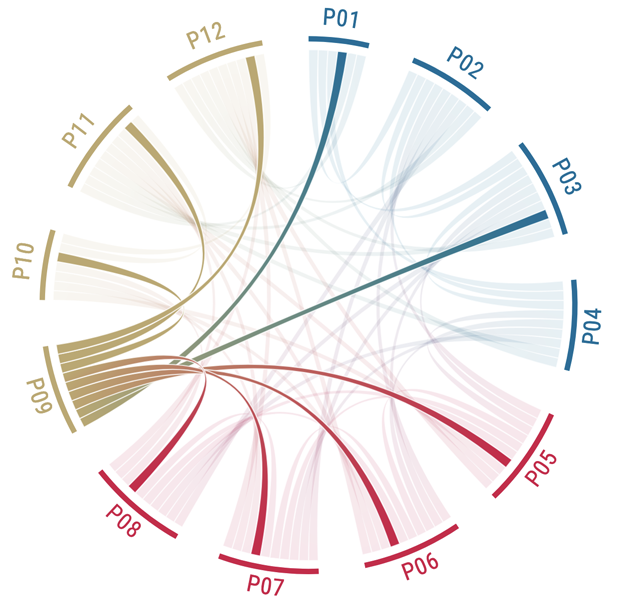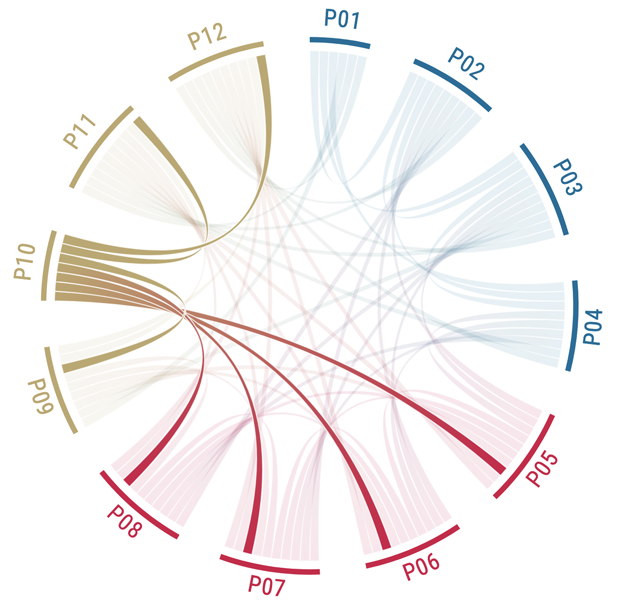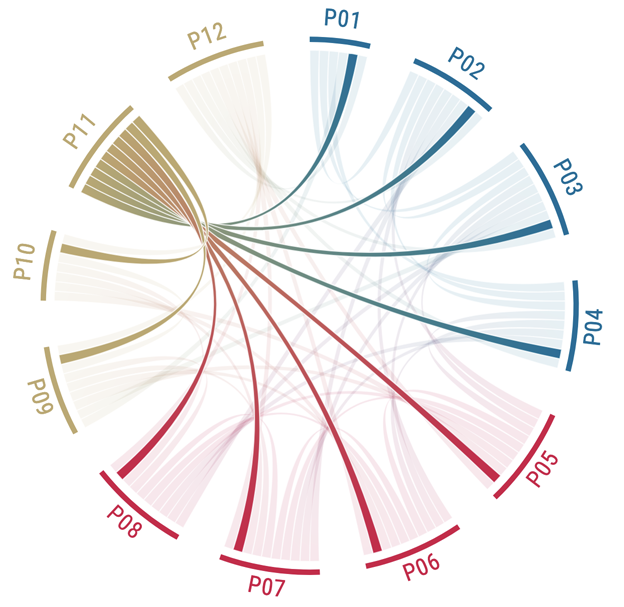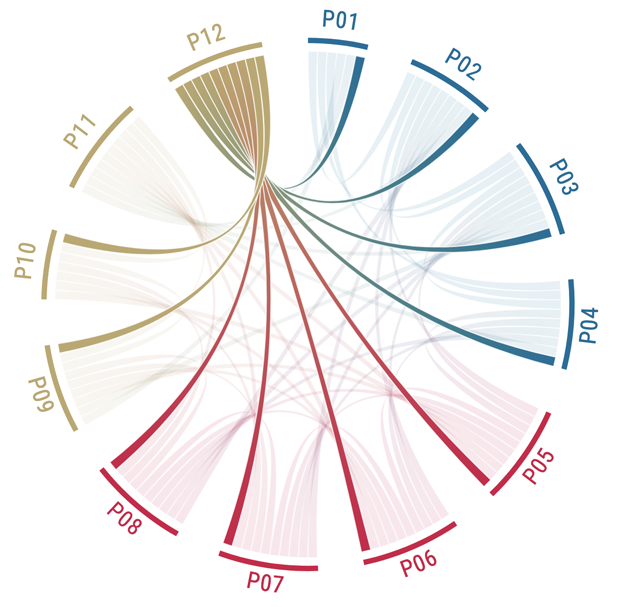The IRTG offers 12 projects for doctoral researchers in the area of women’s hormonal transitional phases. They are divided into the areas negative valence (P01-P04), positive valence (P05-P08) and negative & positive valence (P09-P12) .
The projects will look at different hormonal transition phases in women and apply a variety of methods. In a joint effort of all twelve research projects, we will set the foundation for a sophisticated and systematic exploration of women’s mental health across different hormonal transition phases.

P01 – Stress reactivity in relation to epigenetics of estrogen signaling during puberty
Puberty in girls leads to a change in DNA methylation of more than 300 genes in peripheral blood mononuclear cells (PBMC); among those, genes related to estrogen signaling are significantly overrepresented. However, whether puberty-induced changes in DNA methylation of those genes are associated with alterations in the stress response has not been investigated yet. This will be the aim of project P01.
PhDs

P02 – Stress reactivity and stress regulation in relation to estradiol administration
In this project, we will test the model proposed by Albert and Newhouse (2019), which suggests that estradiol (E2) may alter the emotional response to negative information by making it salient to cognitive processes and consequently mood states. To achieve this, we will examine the effects of E2 signaling on the amygdala and the hippocampus during stress and stress regulation in both naturally cycling and postmenopausal women.
P03 – Stress reactivity and hormonal contraception
Hormonal contraception (HC) is used by many million women around the world, and oral contraceptives are the most frequently prescribed pill worldwide. Given that side effects such as depressive symptoms are typically reported as the main reason for discontinuing HC use and potentiated stress reactivity due to progesterone has been reported, additional research efforts to evaluate the neuropsychological effects of HC use on mood homeostasis and stress responsivity are warranted and will be investigated in this project.
PhDs

P04 – Stress, inflammation and neuroimaging in major depressive disorder as compared to premenstrual dysphoric disorder
In this project we will elucidate the influence of stress on inflammation and brain function in women with major depressive disorder (MDD) in contrast to premenstrual dysphoric disorder (PMDD). This approach will significantly improve our understanding of the pathophysiology of MDD as compared to PMDD and, therefore, may pave the way to more individualized therapies in the sense of precision psychiatry.
PhDs

P05 – Dopamine and reward learning across hormonal transition phases
Hormonal transition phases are characterized by a wide range of changes including alterations in energy and mood homeostasis. Consequently, these hormonal transition phases may incur an increased risk for the onset or exacerbation of mental disorders. Emerging evidence suggests that these changes could be driven by altered dopamine transmission, which is closely linked to endocrine signaling. In P05 we want to investigate this link in women with different hormonal profiles and men.
P06 – Oxytocin and reward processing across hormonal transition phases
The hypothalamic neuropeptide oxytocin regulates not only reproductive and psychosocial function, but also reward processing. Endogenous oxytocin concentrations peak around ovulation and are positively associated with body-mass-index in women, while eating disorders imply dysfunctional oxytocin signaling. The contribution of oxytocin to reward processing in women, however, has not been systematically investigated yet but constitutes the aim of P06.
PhDs

P07 – Neuroendocrine regulators of psychosexual health
Sexual health and sexual wellbeing crucially contribute to (mental) health. Four domains of the sexual response cycle can be differentiated: sexual desire, sexual arousal, sexual function, and sexual behaviors. Although the subjective interpretations of the experiences of sexuality almost certainly change over the life-course, physiologic components such as sexual arousal and orgasm may not. However, no study has systematically investigated the effect of hormonal transitions and hormonal contraception on the four domains. Furthermore, it is currently unclear how kisspeptin, a peptide hormone, influences sexual behavior in women which will also be investigated in this project.
P08 – Anti-estrogenic therapy and psychosexual health
Anti-estrogenic therapy as a treatment for breast cancer causes significant consequences in affected women. These consequences include both physical (e.g., vaginal atrophy symptoms) and mental problems (such as depression and anxiety). Although literature suggests that the psychosocial experience of a breast cancer diagnosis may be different across the lifespan, few is known about the similarities and differences in the psychosocial experience and psychosexual health between women with breast cancer (on anti-estrogenic treatment) during the reproductive phase vs. perimenopausal women. Hence, this project will investigate the effect of anti-estrogenic therapy on positive valence, psychosocial experience and (mental) health in reproductive vs. perimenopausal women.
PhDs

P09 – Positive and negative effects of social media usage during puberty
Social media seem to be attractive to adolescent girls due to a generally high interest in social interaction. Though social interaction by social media use often has a rewarding function, adolescent girls often report the urge to stay informed and the fear to lose their social connectedness, which causes distress and can foster excessive media use. However, insights on underlying mechanisms of excessive use of social media in adolescent girls are scarce and will be collected in this project.
P10 – Maternal and fetal reactions to psychosocial stressors/rewards during pregnancy
Studies have shown that maternal prenatal stress, depression, or anxiety have an adverse impact on the offspring and might contribute up to 10-15% of the attributable load for emotional/behavioral outcomes in the child. This project’s goal is to determine fetal autonomic system changes, such as heart dynamics, and brain functional alterations, i.e., spontaneous and event related brain activity, that are related to maternal psychological stress and hormonal fluctuations.
P11 – Gender identity and norms and psychosocial function across hormonal transition
Most existing research on hormonal transitions has been unable to consider women’s own gender-related identities and contextual variations in gender norms as moderators of women’s perceptions of hormonal transitions, symptoms, and mental health. This project thus aims to provide new insights as to how varying gender norms and personal identities relate to women’s mental health across puberty and pregnancy.
PhDs

P12 – Genetic architecture of female mental health and its relation to brain architecture
Genetic analyses thus far mostly applied simple univariate frameworks, thereby disregarding potentially important shared information across clinical and psychological traits. Likewise, brain imaging analyses are often performed using simple case-control designs, disregarding large parts of the population variability across the lifespan. Building on our strong expertise in linking genetics with brain imaging data, we will search for brain phenotypes that are sensitive to the genetic risk for poor mental health in females.








